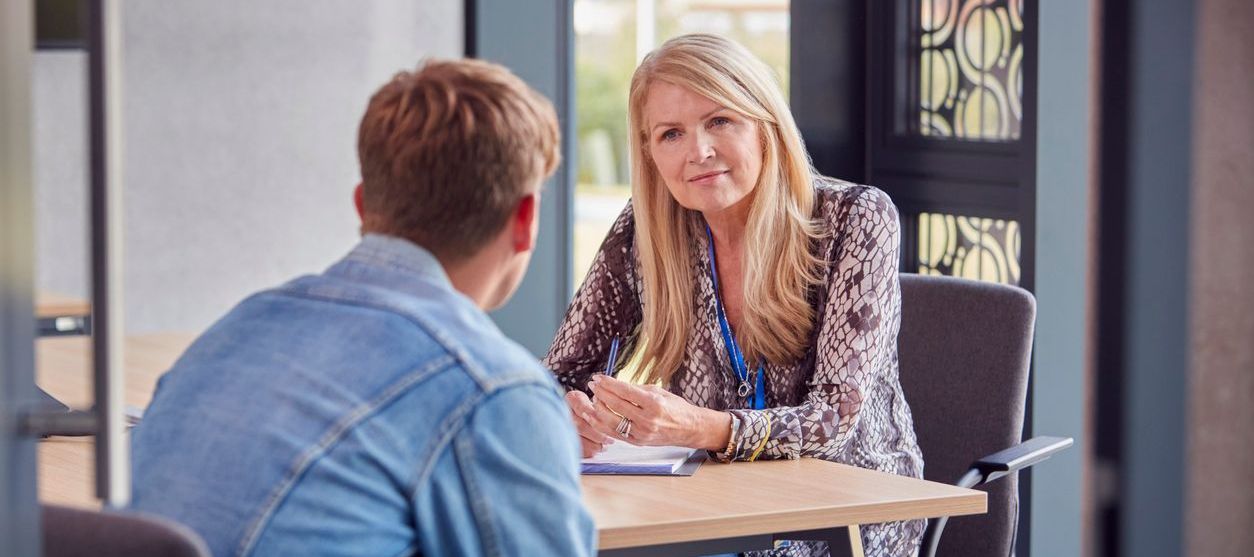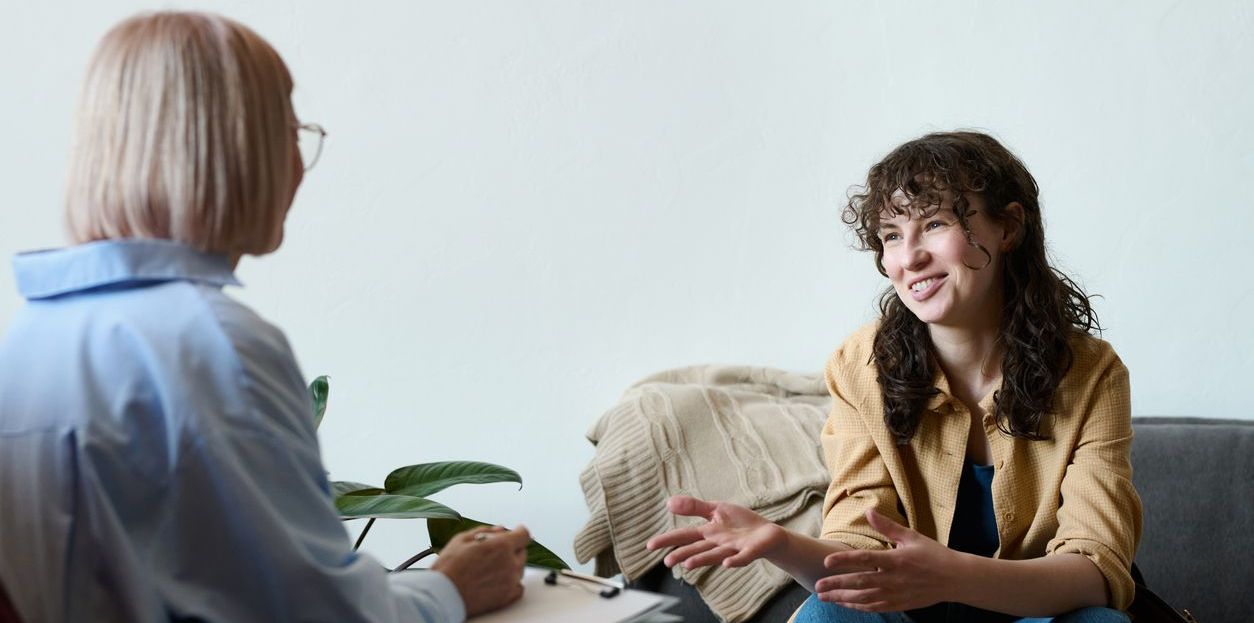-
Marriage Relationship
Counselling Therapy.
Find Qualified Counsellors & Therapists
Near You At Affordable Fees For Online Or
In Person Sessions. Req Free Quote Now!
What is Marriage Counselling Therapy?
Marriage counselling therapy, also known as couples therapy or relationship counselling, is a specialised form of therapy designed to help married or committed couples improve their relationship, resolve conflicts, and strengthen their bond. It provides a safe and supportive environment for couples to explore their relationship dynamics, address issues, and work towards shared goals for a healthier and more fulfilling partnership.
Common Issues Addressed in Marriage Counselling
Marriage counselling therapy can address various issues and challenges faced by couples, including:
- Communication problems: Difficulty expressing needs, concerns, or emotions effectively and listening to one another.
- Conflict resolution: Managing disagreements, arguments, or conflicts in a healthy and constructive manner.
- Trust issues: Rebuilding trust after infidelity, betrayal, or breaches of trust.
- Intimacy and connection: Enhancing emotional and physical intimacy, rebuilding closeness, and strengthening the bond between partners.
- Parenting and family dynamics: Co-parenting challenges, differences in parenting styles, or conflicts related to extended family members.
- Life transitions: Navigating major life changes such as career changes, relocation, or the birth of a child.
- Sexual concerns: Addressing issues related to sexual intimacy, desire discrepancy, or sexual dysfunction within the relationship.
Benefits of Marriage Counselling Therapy
Marriage counselling therapy offers a range of benefits for couples seeking to improve their relationship, including:
- Improved communication: Learning effective communication skills to express needs, emotions, and concerns openly and listen to one another with empathy and understanding.
- Conflict resolution: Developing strategies to address conflicts constructively, find common ground, and negotiate solutions that meet both partners' needs.
- Strengthened bond: Building trust, emotional connection, and intimacy between partners, fostering a deeper understanding and appreciation for one another.
- Enhanced problem-solving skills: Learning problem-solving techniques and coping strategies to navigate challenges and stressors together as a team.
- Relationship satisfaction: Increasing relationship satisfaction, mutual respect, and overall relationship quality.
- Preparation for major life transitions: Preparing for major life changes such as parenthood, career changes, or retirement by addressing potential challenges and strengthening the relationship foundation.
Goals of Marriage Counselling Therapy
The goals of marriage counselling therapy may include:
- Improving communication and conflict resolution skills within the relationship.
- Rebuilding trust and emotional connection after breaches of trust or betrayals.
- Enhancing intimacy and sexual satisfaction within the relationship.
- Addressing specific issues or concerns affecting the relationship dynamics.
- Strengthening the partnership and fostering a sense of teamwork and collaboration.
- Navigating major life transitions or crises as a couple.
- Building a resilient and fulfilling partnership that can withstand challenges and thrive over time.
What to Expect in Marriage Counselling Sessions
In marriage counselling sessions, therapists typically:
- Facilitate open and honest communication between partners.
- Help couples identify underlying issues, patterns, and dynamics contributing to conflicts or challenges in the relationship.
- Teach communication and conflict resolution skills, including active listening, validation, and problem-solving techniques.
- Provide psychoeducation on relationship dynamics, attachment theory, and other relevant concepts.
- Collaborate with couples to set goals, develop action plans, and implement strategies for positive change.
When to Seek Help
Couples may consider seeking marriage counselling when they:
- Experience frequent conflicts, tension, or communication breakdowns in the relationship.
- Feel disconnected, distant, or unfulfilled in the partnership.
- Encounter challenges such as infidelity, trust issues, or major life transitions.
- Want to strengthen their relationship, enhance communication, or improve intimacy.
- Feel stuck or unable to resolve conflicts or issues on their own.
How to Find the Right Counsellor
When seeking a marriage counsellor, consider the following factors:
- Specialisation: Look for a therapist who specialises in marriage counselling or couples therapy.
- Approach: Choose a therapist whose approach aligns with your values, goals, and preferences for therapy.
- Credentials and experience: Verify the therapist's credentials, licensure, and experience working with couples.
- Compatibility: Select a therapist with whom you and your partner feel comfortable, understood, and respected.
Marriage Counselling FAQs
- What if my partner refuses to attend counselling? It's common for one partner to be hesitant about counselling. You can still attend sessions on your own to work on individual issues and learn strategies for improving the relationship.
- How long does marriage counselling take to see results? The duration of counselling varies depending on the complexity of issues and the willingness of both partners to engage in the process. Some couples see improvements in a few sessions, while others may require longer-term therapy.
- Is everything discussed in counselling confidential? Confidentiality is a fundamental aspect of therapy. However, there are exceptions, such as if there is a risk of harm to yourself or others. Your therapist will discuss confidentiality and its limits during the initial sessions.
- Can counselling save a marriage on the brink of divorce? Counselling can provide a supportive environment for couples to explore their issues and work towards reconciliation. However, success depends on the commitment and willingness of both partners to actively engage in the process.
- What if we're not sure if we want to stay together? Marriage counselling can help couples clarify their feelings, explore options, and make informed decisions about the future of their relationship, whether that involves staying together or parting ways amicably.
LGBTQ+ Considerations
For LGBTQ+ couples, it's important to find a therapist who is affirming and knowledgeable about LGBTQ+ experiences and issues. Look for therapists who create a safe and inclusive space for exploring relationship dynamics and addressing unique challenges faced by LGBTQ+ couples.
Next Steps:
If you and your partner are experiencing challenges in your relationship or want to strengthen your bond, consider reaching out to a qualified marriage counsellor or therapy professional who can provide you with the support, guidance, and tools you need to navigate the ups and downs of your relationship. Remember that seeking help is a proactive step towards creating a healthier, happier, and more fulfilling partnership.
Find Counsellors & Therapists Near You

Find Qualified Counsellors & Therapists
Near You, Get A Free Quote, Read Reviews, & Hire!
Online Or In Person Sessions.



